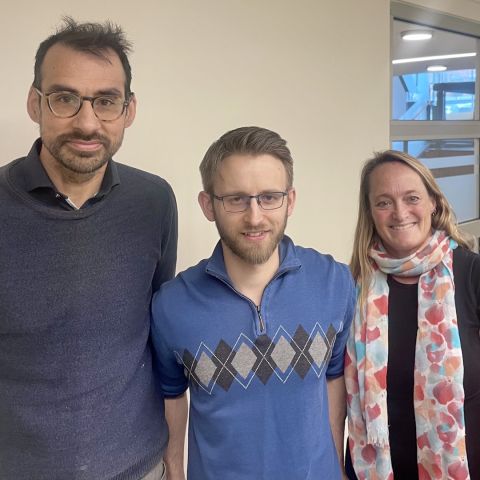
Devan Schafer, LLM’19, PhD’24, focuses on civil litigation and personal injury claims in his practice as an associate at the Hamilton, Ont., firm Mackesy Smye. And when he’s counselling clients, he often finds himself addressing their lack of knowledge about administrative law. “The system can be a labyrinth. That’s something that I’ve become ever-more aware of the longer I practice,” he says.
It’s not unfair to say that administrative law is something of a forgotten aspect of the Canadian legal system. When most people talk about “the law,” what springs to mind for them is police stopping vehicles at the roadside, or maybe courtroom dramas in which judges and lawyers perform at centre stage. “There’s a popular conception of ‘the law’ and how it works, and then there’s the reality,” Schafer says.
That workaday reality involves the integral roles administrative boards and tribunals play in our legal system; they include matters related to a vast range of concerns – everything from workplace safety and immigration matters to child welfare, inmate parole hearings, and landlord and tenant matters. “When Canadians engage with the law, as often as not it’s with an administrative tribunal,” Schafer notes.
Despite the fact that administrative law has such a direct and immediate impact upon people’s daily lives, many Canadians have limited understanding of the work the involved agencies do or of the process that guides them in their decision-making. The same holds true when it comes to the factors that are relevant when a frustrated petitioner wants to seek judicial review of the ruling of an administrative board or tribunal. All of that has given Schafer a lot of food for thought.
Ever since his JD studies, he’s been intrigued by the interplay between the legal principals that underlie our system of administrative law and the workaday dictates that determine how that system works. One of Schafer’s professors took note of his passion for such ideas and so she encouraged him to pursue graduate studies.
The St. Catharines, Ont., native did that when he opted to continue his legal education at Queen’s Law. His experiences earning a LLM under the tutelage of Professor Grėgoire Webber proved to be so rewarding that Schafer opted to take the next step up the academic ladder. He began doctoral studies at Queen’s Law in the autumn of 2019.
Initially, Schafer wasn’t sure what topic he wanted to explore and write about. It was only after conferring at length with Associate Dean Cherie Metcalf, who served as his academic supervisor, that he chose an administrative-law-related topic. In retrospect, it seems logical that he did.
“What I looked at when I did my LLM also was in the field of administrative law; it had to do with Charter values. However, that was a standalone project that wasn’t related to my PhD studies,” says Schafer.
“This time around, I was keen to look at how administrative boards and tribunals actually work. I wasn’t interested in legal theories that weren’t related to pragmatic realities.”
What Schafer specifically set out to do was to develop a practical legal test that would recognize systemic administrative injustice as a new basis for judicial review. “I doubt that the urgency of the problem I wanted to address would have been as apparent to me if I hadn’t been in practice as long as I’d been,” he says.
Schafer had done enough preliminary research to know that legal scholars already had delved into many of the key theoretical questions in the field of administrative law. “What I’d seen and what intrigued me was that there was no systemic way to explain the individual decisions that are made by boards and tribunals, and so what I wanted to do was develop a framework to help make that possible,” he says.
So Schafer set about trying to do that. He remained on campus full-time for three years reading, doing research, and writing before returning to his law practice. “Finishing my thesis while also working full-time for those 18 months was a real challenge,” he recalls. “I got up early each day, and I devoted my weekends to writing and polishing what I’d written.
“It’s difficult to state a ‘bottom line’ to my doctoral thesis. However, a key theme that I stress deals with the reality that administrative law can and does affect people’s lives in some significant ways. This means that in the process there’s room and a need for a strong element of advocacy on behalf of a lawyer’s clients.”
Given that Schafer’s approach to his topic was unabashedly pragmatic, he finds gratifying the praise accorded to his thesis by practitioners who’ve read it. Among them has been a Mackesy Smye colleague who praised “the utility of the work.” That and similar assessments bring a smile to Schafer’s face.
He’s understandably eager to see his thesis published – “as soon as I can find the time to get it ready,” he says. Meanwhile, Schafer is musing about his future.
“I really enjoy having the time to think about and analyze a legal problem. That’s something you don’t have the luxury of doing when you’re dealing with the day-to-day demands of a law practice,” he says. “I’m still on the fence when it comes to deciding where I want my career to go. But long-term, I find the idea of working in academia to be quite attractive.”
By Ken Cuthbertson, Law'83